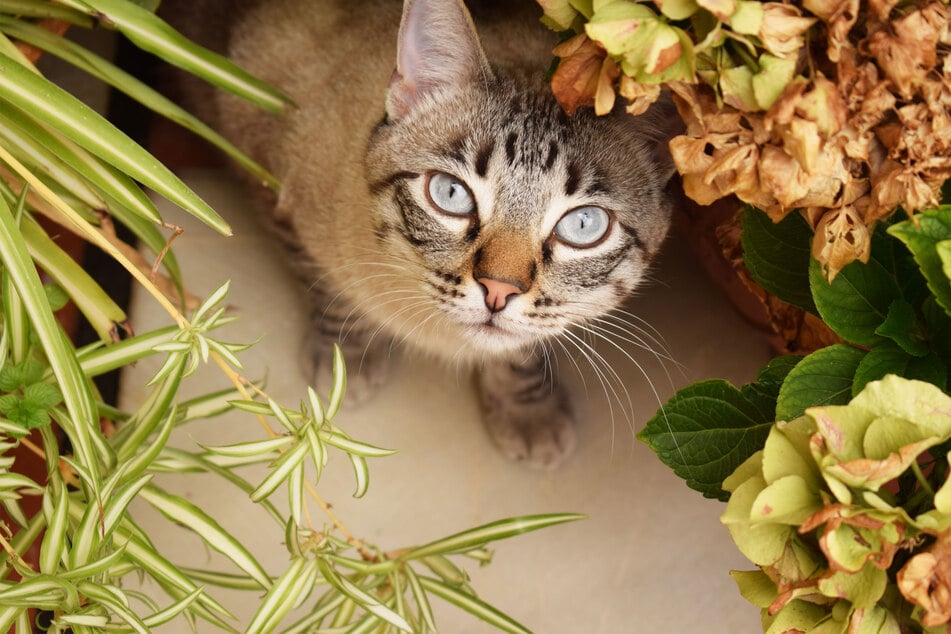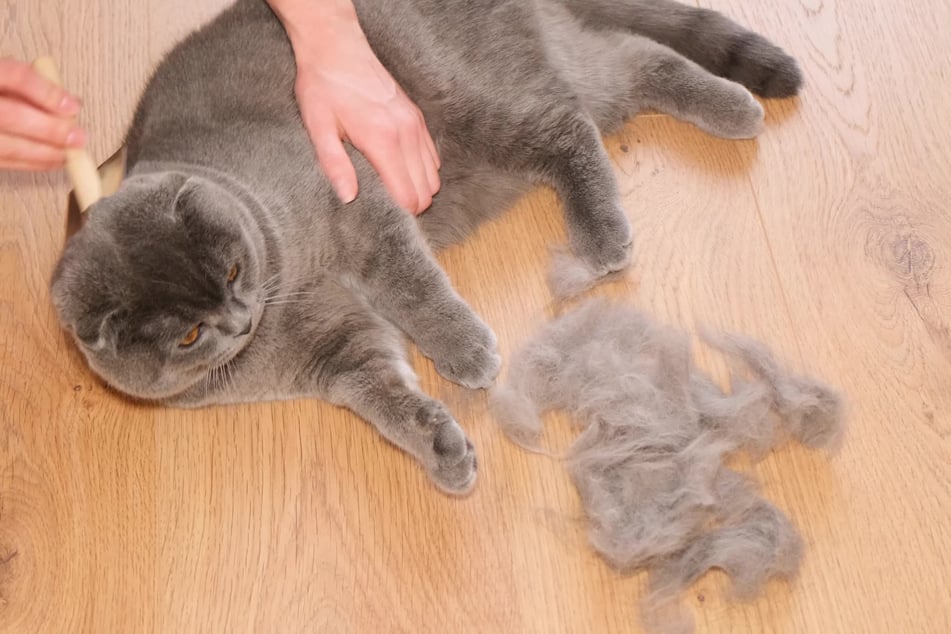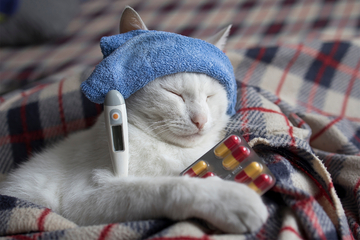Cat hairballs: Causes, symptoms, and remedies
Few things are more unpleasant for a cat owner than having to clean up hairballs. But a few simple tricks can make your life – as well as that of your feline friend – a lot easier.

Hairballs are one of those occupational hazards that come with being a cat owner that most people would love to be able to avoid.
Straight off the bat, though, we'll have to dash those dreams: there's no avoiding hairballs completely. Like the occasional scratch or ruined piece of furniture, they are part of life with a cat companion.
That doesn't mean there aren't things you can do to mitigate the annoyance, though!
Let TAG24's cat guide give you a crash course on the causes and solutions for hairballs.
What causes cat hairballs?
Cat hairballs are caused by the buildup of cat fur within your kitty's throat through the cleaning process. As your kitty continues to lick its way around its body, its rough tongue will collect a lot of fur that then ends up stuck and clogging up its esophagus.
This collection of fur eventually accumulates, forming a ball of nasty fur that needs to be expelled from the cat's body. When this happens, your cat will first feel quite unwell and then throw up a hairball.

Cat hairball blockage symptoms
When a cat is about to expel a hairball, and is feeling that blockage creep further and further up through its system towards it mouth, it's understandably not going to feel particularly great. Sadly, your cat is in the middle of a pretty uncomfortable and unpleasant experience.
As a result, you might find that in the hours before a major hairball episode, your cat is strangely grumpy and unhappy. Don't hold this against your fluffy little friend and, instead, take a step back and give it some space.
Here are the symptoms of a cat hairball blockage:
- Constant vomiting
- Regular gagging or retching
- Complete lack of appetite
- Bad mood
- Lethargy
- Diarrhea or constipation
Important: While a cat will vomit when it throws up a hairball, and you will find that a small quantity of stomach fluid has come out with your kitty's hair sausage, this is very different to active cat vomiting. As a result, it should be treated as less serious.
How long does it take for a cat to pass a hairball?
Seeing as the cat's hair gets squashed into a tubular shape that needs to be expelled upwards rather than downwards, it can be quite a process for your cat to get it out. In many cases, this will involve a lot of gagging and retching as the cat continues to try and push the giant blob of hair further up through its system and out of its mouth.
Due to this process being long and slow, it can take up to 48 hours from when a cat first feels the hairball and knows it needs to throw it up, to when the fur ball actually leaves its system.
Cat hairball remedy

There are no appropriate home remedies for cats with fur balls. When a cat has frequent and serious hairball problems, it needs to be treated by a veterinarian and not by you. All you can do is to take mitigating steps to help reduce the quantity and viciousness of hairballs.
In terms of actual treatment, your vet will likely take action when a cat is experiencing overly severe and frequent hairballs. Veterinarians often prescribe hairball medicines including laxatives to help lubricate and move the hairballs through your cat's system faster. High fiber diets are often prescribed, as well as particular treats that should help to break up hairballs and speed up the process.
Ultimately, though, mitigation and prevention is your best move. Take these steps to help prevent and control future hairballs:
- Frequent brushing should be used to reduce the amount of fur consumed by your cat when it cleans itself.
- With the approval and prescription of your veterinarian, laxatone can help control the problem.
- Dietary changes can be used to help improve hairballs, they include:
- Increased fiber
- Supplements to help reduce shedding
As unpleasant and annoying as they can be, hairballs are just a natural part of your cat's life, and something that you're going to have to get used to. If you are worried or need advice, though, don't hesitate to ask your veterinarian.
Cover photo: IMAGO/Wirestock




